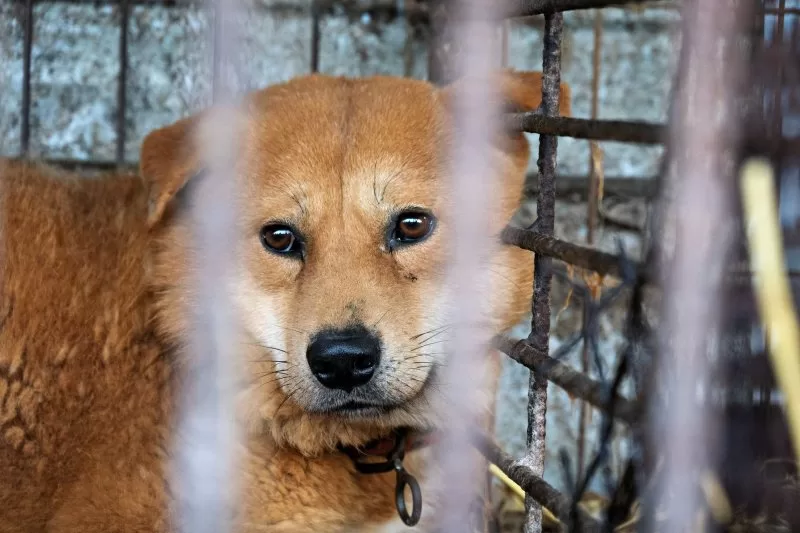SEOUL, Aug. 7 (UPI) — A landmark law banning the dog meat industry in South Korea took effect Wednesday, starting the final countdown for an age-old practice that has fallen deeply out of favor in the country.
The law, passed at the beginning of the year, allows for a two-and-a-half-year grace period as dog farmers and restaurant owners transition to new businesses before a final deadline of February 2027.
At that point, penalties for violating the law will include up to three years in prison and fines of up to roughly $23,000 for those who butcher dogs. Those who breed and sell dogs for meat will face up to two years in prison and fines of $15,000.
The government will offer compensation packages to dog farmers, butchers and restaurants who submitted a plan to close or transition their businesses, South Korea’s Agriculture Ministry said in a press release.
“We will actively support the necessary measures so that all industries that are subject to the closure can be carried out stably and reliably, and the complete end of dog meat consumption can be achieved by February 2027,” Park Jung-hoon, an animal welfare and environmental policy officer at the ministry, said.
Some 5,600 businesses, including 1,500 farms and 2,200 restaurants and shops, were identified during a mandatory reporting period and will be eligible for support, the ministry said in May.
Dog breeding farms will receive compensation for residual value as well as closure and demolition costs. If the farms switch to other industries, the government will provide loans and funding for new facilities, specialized education, training and consultation. Restaurant owners will receive small business support packages for acquiring new supplies and altering their menus.
The law’s implementation comes during the hottest period of summer in South Korea, known as Bok Nal, when dog meat is most commonly eaten in a stew called bosintang.
However, local media reports indicate that dog meat restaurants have seen a significant decline in business this year, while traditional alternatives such as black goat and eel have been booming.
“This was the first Bok Nal since the dog meat ban was passed, and already we have seen reports of reduced consumer interest in dog meat,” Sangkyung Lee, Humane Society International/Korea’s dog meat campaign manager, said in an emailed statement to UPI.
“The message is clear for those relative few who still eat dog meat, that the end of South Korea’s dog meat era is in sight,” he said.
Dog meat has been falling out of favor at a blistering pace over the past several years as pet ownership has skyrocketed.
A survey released in December by Seoul-based animal rights group Aware found that some 82% of respondents supported a ban and more than 93% said they had no intention of eating dog meat in the future.
Efforts to shut down the dog meat industry picked up momentum last year as both major political parties introduced bills and high-profile political figures including first lady Kim Keon Hee spoke out in favor of a ban.
Dog meat farmers continue to protest the new law, however, with a trade group filing a petition against the ban with the Constitutional Court in March.
Next month, the Agriculture Ministry is slated to release a plan with details on how the dog meat industry will be dismantled before the February 2027 deadline, including specific compensation packages for businesses.
